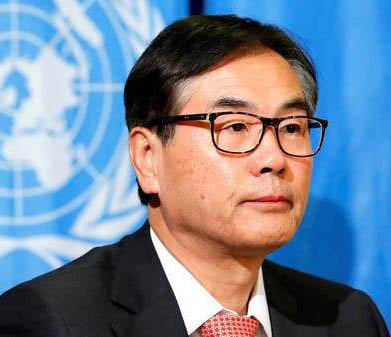Developing countries including territories in Latin America and the Caribbean are likely to find the pace of their post COVID-19 recovery significantly compromised notwithstanding the fact that during 2020, a full calendar year of the pandemic, they attracted a record share of global foreign direct investment, according to Investment Trends Monitor published by the United Nations Conference on Trade and Development (UNCTAD) at the end of January this year.
UNCTAD’s revelations are attributed to what the report says was a “significant” fall in investment in the infrastructure and productive sectors in developing countries, a circumstance which it says, has weakened their COVID-19 recovery prospects.
The report blames the circumstance on what it says was a steep decline in international project financing targeting named regions including Latin America and the Caribbean. This, notwithstanding the fact that overall foreign direct investment (FDI) flows to developing countries showed relative resilience during the ongoing COVID-19 crisis, falling by just 12 per cent in 2020 compared with the staggering 69 per cent collapse recorded by richer economies.

UNCTAD’s Director of Investment and Enterprise Development James Zhan is quoted as saying that investments in the infrastructure and productive sectors “are crucial for productive capacity and infrastructure development and thus for sustainable recovery prospects. The UN agency defines productive capacities as the productive resources, entrepreneurial capabilities and production linkages that together determine the capacity of a country to produce goods and services and enable it to grow and develop.
“Without investment in the productive sectors of the economy, developing countries will struggle to rebuild from the effects of the pandemic,” Zhan said.
Globally, announced greenfield projects, where a company plans to invest in new production facilities in a foreign country, declined by 35 per cent in 2020 to an estimated $547 billion. According to the report, the decline was even steeper in developing economies, dropping 63 percent in Africa and 51 percent in Latin America and the Caribbean. Even developing economies in Asia – the group that has weathered the coronavirus-induced FDI storm the best – saw a 38 percent drop in greenfield announcements, UNCTAD says.
The UNCTAD report informed that global cross-border project finance deals, an important source of investment in infrastructure including ports and dams, were weak up to the third quarter of 2020, prior to a flurry of new project announcements in the final months of the year most of which were part of COVID-19 economic support packages.
The UNCTAD report further states that the limited capacity of poorer countries to roll out COVID-19 packages to stimulate investment in infrastructure meant that big drops in project finance deals were registered in those economies.
And according to the UNCTAD assessment, the slide for developing countries is not yet over. Even more worrying, the report says, is that the biggest drops in international project finance in developing economies occurred in the second half of the year, which is contrary to global trends.
Zhan says that this year there are worrying signals that project finance in 2021 will be skewed towards developed economies, and that any increase in Foreign Direct Investment flows is more likely to come from cross-border mergers and acquisitions than from new investment in productive assets.






